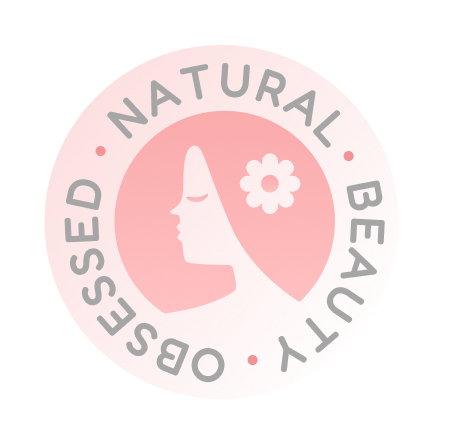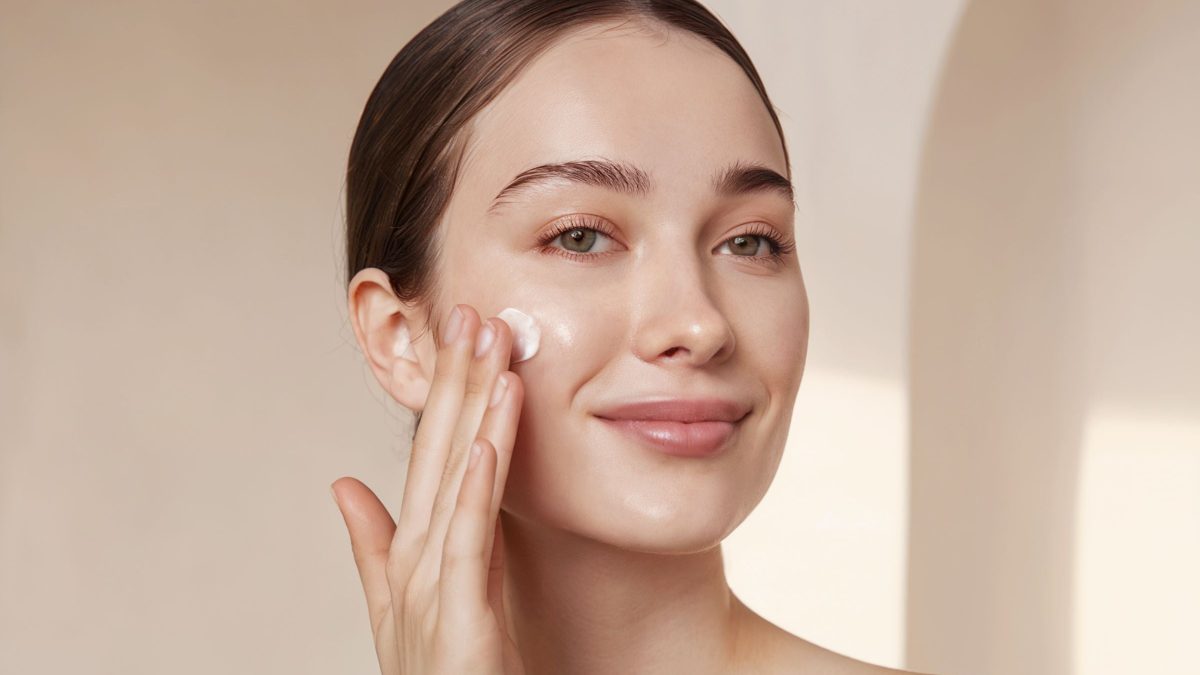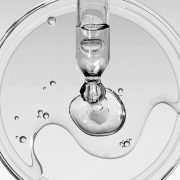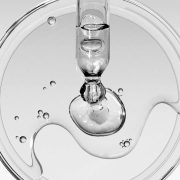Banish Breakouts & Reveal Radiance
Posted on February 16, 2025 Written by: 100% PURE®

Staying afloat of all the lingo in the vast ocean of skincare products can be tricky, especially when you come across “comedogenic” and “” As two of the most popular yet confusing terms on packaging, it’s no wonder you might want to jump ship. But what if the meaning of those words meant the difference between clear skin and clogged skin? Well, ahoy there!
If you’re struggling with breakouts, clogged pores, or oily skin despite using “good” skincare products, the problem might be your ingredients. Many skincare products contain pore-clogging ingredients that lead to blackheads, acne, and irritation – but hold off with a skin SOS!
Let’s explore non-comedogenic skincare, including what makes a product non-comedogenic, the best ingredients to look for, and the top non-comedogenic skincare picks for a clear, healthy complexion.
What Does Non-Comedogenic Mean?
When you’re perusing skincare, you’ve likely come across the term “non-comedogenic” on product labels. Out of the thick and heavy marketing terms in the beauty realm, this one stands out as an essential ally against breakouts. Since a “comedo” or “comedone” is the earliest form of acne or a clogged pore, the term is important for those with or or .
Products labeled as non-comedogenic are less likely to clog pores and are formulated to minimize the risk of breakouts. Non-comedogenic skincare ensures your skin gets hydration and nourishment without clogging pores or triggering breakouts. This is great news if your regular “good” skincare products are taking your skin through troubled waters.
So, how does non-comedogenic skincare differ from regular skincare? Many traditional skin formulas contain harsh, pore-clogging, or comedogenic ingredients, which are more likely to clog pores or cause breakouts. One way to combat any pore-rrific skin issue is to use non-comedogenic skincare, free from heavy, pore-clogging oils and waxes. These formulas use lightweight, breathable ingredients that balance hydration without suffocating the skin.

The Benefits of Non-Comedogenic Skincare
Non-comedogenic skincare products are beneficial primarily because they are designed not to clog pores, which helps prevent acne breakouts. They are particularly suitable for oily, acne-prone, and sensitive skin types. But the benefits don’t stop there!
#1. Reduces Breakouts & Clogged Pores
Non-comedogenic products help reduce the formation of pimples, blackheads, whiteheads, and cystic acne by not blocking pores, keeping them clear and refined.
#2. Balances Oil Production
Non-comedogenic skincare products are lightweight formulas that hydrate without leaving the skin greasy. They prevent the overproduction of sebum, which causes breakouts, and help regulate sebum production, preventing your skin from becoming oily or dry.
#3. Suitable for All Skin Types
Although non-comedogenic skin care products are ideal for oily, acne-prone, and combination skin, that doesn’t mean other skin types won’t benefit from them. Any skin type is vulnerable to comedones. These products are generally gentler and less likely to irritate, making them ideal for even dry and sensitive skin – plus, they hydrate dry skin without suffocating pores.
#4. Prevents Irritation & Inflammation
Non-comedogenic skin products are free from harsh, pore-clogging ingredients, which helps keep skin calm and balanced. Many non-comedogenic products contain anti-inflammatory ingredients that calm irritated skin.
The is a non-comedogenic product that won’t clog pores or cause breakouts. This light, water-based cream hydrates thirsty skin cells with omega fatty acid-rich gel water from chia seeds and won’t clog pores.
How to Identify a Non-Comedogenic Product
Skincare plays a crucial role in keeping your complexion clear and balanced. Acne, oily, and sensitive skin types know this well, as products they use can either help improve skin conditions or potentially exacerbate them. Understanding the benefits of non-comedogenic skincare and knowing what to use or avoid is essential for achieving radiant, clear skin.
#1. Look for Lightweight, Oil-Free Formulas
Avoid heavy oils like coconut oil and lanolin.
These ingredients are highly comedogenic, meaning they have a high likelihood of clogging pores. This can trap bacteria, dead skin cells, and sebum, leading to acne lesions and breakouts, particularly in individuals with oily or acne-prone skin.
Instead, opt for squalane, jojoba oil, and aloe vera for hydration. They also help reduce fine lines and wrinkles and soothe the skin.
#2. Check for Acne-Safe Ingredients
Look for salicylic acid & willow bark extract to help clear pores.
Salicylic acid is ideal for sloughing dead skin and sebum to help clear out comedones. Willow Bark extract, rich in salicin, is a gentle alternative to salicylic acid. It effectively targets acne, blackheads, and enlarged pores.
Look for niacinamide & green tea to reduce inflammation and regulate oil.
Niacinamide helps reduce swelling and redness from acne and helps prevent breakouts by regulating the amount of oil produced by the skin’s glands. Anti-inflammatory is a great choice for acne-prone skin. Green tea can soothe irritated skin, reduce redness and swelling, decrease oil production in skin cells, and remove excess oil from the skin’s surface.
The is one of our best face toners for acne-prone skin. The non-comedogenic formula is made with an infusion of tea tree and witch hazel, which ease oil production in the skin to establish a more balanced, toned complexion. Soothing botanicals like neem, rosemary, and willow combat acne-causing bacteria and oil levels.
#3. Avoid Heavy, Waxy, or Occlusive Ingredients
Knowing which skincare ingredients have a high probability (or not) to clog your pores puts you on a better path to clear, smooth skin. That’s where we’re here to help! Avoid heavy, waxy, or occlusive ingredients and the comedogenic ones below!
Comedogenic ingredients to avoid:
Coconut oil: The thick, oily nature of coconut oil can sit on the skin’s surface, leaving a thick layer surface that traps sebum and dead skin cells, leading to clogged pores and breakouts.
Mineral oil: Mineral oil acts as an occlusive, forming a protective layer on the skin, which can trap other substances like sweat and dead skin cells, leading to pore blockages.
Isopropyl myristate: This is a harsh, synthetic oil that is thick and heavy, which can clog pores.
Artificial fragrances & silicones:
Fragrances can irritate the skin and trigger inflammation. This can worsen acne in individuals with sensitive or acne-prone skin, leading to redness, swelling, and breakouts. Silicones can create a film on the skin that may trap impurities, bacteria, and sweat, potentially leading to clogged pores and acne breakouts.
#4. Opt for Gel-Based Moisturizers & Serums
Opt for lightweight, gel-based, non-comedogenic moisturizers and serums that provide hydration without adding excess oil to the skin and don’t cause congestion. Moisturizing helps maintain the skin’s barrier function, preventing excessive dryness and potential overproduction of sebum, which can contribute to acne development. They’re perfect for combination and oily skin types.
The is a non-comedogenic product that won’t clog pores or cause breakouts. This ultra-light, water-based cream hydrates thirsty skin cells with omega fatty acid-rich gel water from chia seeds and is ideal for combination, oily, and acne-prone skin.

The Best Non-Comedogenic Skincare Products
Non-comedogenic products are crucial for acne-prone skin because they are formulated to minimize pore-clogging and reduce the risk of acne breakouts. Non-comedogenic products are designed to be lightweight and oil-free and allow the skin to breathe. They typically avoid ingredients known to clog pores, such as certain oils, heavy waxes, and emollients.
Here are the top non-comedogenic 100% PURE products you can add to your skincare routine for clear, radiant skin!
This cleanser clarifies skin and removes impurities without clogging pores. It cleans skin with acne-fighting ingredients like willow, neem, parsley, and tea tree. Turmeric can help fade acne scars and won’t dry out or cause sensitive skin. The addition of burdock will also help to soothe the skin. It’s best for oily and acne-prone skin needing a deep cleanse.
This lightweight, deeply hydrating serum features rose hydrosol and calendula – both praised for their soothing effects – along with white tea for a boost of antioxidants. All the while, your skin is also receiving the benefits of hyaluronic acid for ultra-hydration and plump, dewy-looking skin. It’s best for adding hydration to the skin without oiliness.
This water-based, oil-free moisturizer offers lightweight hydration and won’t clog pores or cause breakouts. It hydrates thirsty skin cells with omega fatty acid-rich gel water from chia seeds and is ideal for combination, oily, and acne-prone skin needing balance.
This setting powder contains only one ingredient: bamboo silica. Bamboo is an eco-friendly, renewable, and versatile plant. It absorbs excess oil and blurs imperfections without clogging pores. It’s best for matte, shine-free skin without suffocating it.
FAQs About Non-Comedogenic Skincare
How do I know if a product is non-comedogenic?
To determine if a product is non-comedogenic, first look for “non-comedogenic” labeling on the packaging. While not regulated, this indicates that the product is less likely to clog pores. Then, check the ingredient list for known comedogenic substances.
What should I do if a product exacerbates my acne?
If a product inflames your acne, you can take a few steps. First, discontinue the use of the product immediately. Next, revert to your previous skincare routine to allow your skin to recover. If necessary, consult a dermatologist who can provide personalized guidance and recommend alternative products suitable for your skin type.
Should I use non-comedogenic makeup, too?
You should use non-comedogenic makeup if you are concerned about acne or have acne-prone skin, as it is specifically formulated to not clog pores and reduce the likelihood of breakouts; even if you don’t have severe acne, opting for non-comedogenic products can be a preventative measure for healthy skin.
The
This non-comedogenic serum foundation is designed to look and feel like a second skin, with ultralight olive squalane and pure fruit pigments. This antioxidant-rich second skin foundation features anti-aging benefits to help enhance youthful plumpness and diminish the appearance of fine lines and wrinkles. This natural finish foundation offers seamless and lightweight coverage.
Can a product cause breakouts even if it doesn’t contain these ingredients?
Yes, a product can cause breakouts even if it doesn’t contain known comedogenic ingredients. While certain substances are more likely to clog pores, everyone’s skin is unique and may react differently to various ingredients.
How long should I test a product before deciding it’s causing breakouts?
The timeframe for testing a product to determine if it’s causing breakouts can vary. It’s recommended to test a new product for at least 2-4 weeks, as this allows sufficient time for your skin to adjust and for any potential reactions to show.
Final Thoughts: Switch to Non-Comedogenic Skincare for Clear, Healthy Skin
Maintaining a healthy, clear complexion is essential for overall skin health. Using non-comedogenic products prevents breakouts, balances oil, and keeps skin clear.
It’s important to switch to lightweight, non-pore-clogging formulas for clearer skin. 100% PURE offers a range of natural products specifically designed to support and protect your skin. Shop 100% PURE’s non-comedogenic skincare collection and start your journey to clearer skin today! Non-comedogenic will be your best skin mate!




